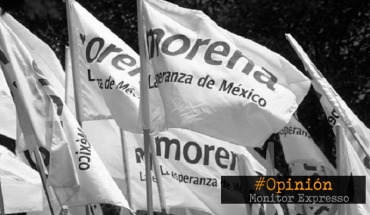I see in the press a concern on the part of some sectors about what they call “The Problem of the Nacio Institute nal.” This lyceum, which is known to be the first establishment of the Republic – it was founded in the year 1813-, is an emblem of our country. The tradition of emblematic public lycée generates an attention that exceeds that paid to other establishments. The Institute imposes itself as an icon of public education.
The actions carried out today by the students of the National Institute remind me of the year 1986. While in class, we heard the cries of a group of classmates from the central courtyard. By evading classes, they had begun protesting the announcement of the municipality of the Institute. The chief professor, lover of the dictatorship (always named Bochi as her former student) threatened us with severe sanctions that we cannot hear from those who left the room. Gradually, mobilization began to take shape. Hundreds of children, teenagers were in the courtyards demanding that the establishment be maintained depending on the Mineduc. Thus began the longest unemployment of secondary education in times of dictatorship. Of course, the Institute was not alone, at the same time other lycées were mobilized.
During the dictatorship, the process of undermining public education began. The idea was that all tax education establishments were part of private corporations with some dependence on municipalities. The process, initiated in the early 1980s, was part of the privatization of the public system. This change was accompanied by a series of measures such as the school attendance grant. The grant, an idea taken from Milton Friedman’s neoliberal proposals, was implemented throughout school education. Another measure that was going as an important support of the process was the installation of standardized measurements that could generate competition inside the system, so the PER (1982) and then the SIMCE were first born, tests that would support the logic neoliberal privatisation.
At the end of the dictatorship, the privatization process begins to be undone in a very timid way, “as far as possible”. Perhaps, during the governments of the Concertación, there was never any direct action against public education, or at least as damaging as in times of dictatorship. Rather, the damage that was caused during that period was by omission, turning its back on the lycées and municipal schools favoring private education through various mechanisms (one of those was shared funding). Subsidized private schools rose in standardized measurements and gradually strengthened segregation in Chile’s education system. According to a report by the Organization for Economic Cooperation and Development (OECD), in 2004 Chile had an education system with greater segregation than society itself.
More than 30 years have passed today since this process began. The National Institute, like the entire public education system, underwent these neoliberal transformations. It was the year 1980 when Public Education began to break down and it is in the following decades that this process continues to be supported by action or omission. Only in Bachelet’s last government could a more concrete step be taken towards strengthening public education. Several mobilizations had to happen, the “mochilazo” of 2001, the penguin revolution in 2006, the great student revolution in 2011 and the feminist May of 2018, among them. The previous Government, with the difficulties posed by the internal and external opposition, took a recovery process of state-dependent education. This new Public Education was not possible without a law of inclusion that manages to solve the problem of segregation existing in schools in Chile. Today, with this Government, both initiatives are at risk.
Our demands were: Democratic choice of student centers, downgrade of school passage, free of process on the Academic Aptitude Test (pre-PSU), visiting minister to investigate student deaths and rejection of the model of Municipalization. We were crazy, scratched, “gunheads.” Today, the mobilization of the students of the National Institute has as main demands that the curriculum mesh take care of the mental health of those who study in public establishments. A second point is to change the funding system that is based on attendance and finally end the criminalization of the student movement. The request is longer, but the leaders themselves have identified these three points as central.
On the one hand, new generations have learned that it is only through mobilization that it is possible to be heard. The experience that has been transmitted makes that learning embodied in social mobilization stronger. It seems only through pressure that it is possible to carry out the necessary reforms for educational improvement. On the other hand, the current authority inherits a history of repression as a mechanism for governing. Little help cages dialogue so safely. They don’t provide repressive answers. It just generates more anger.
Public education was, in practice, dismantled. The previous government laid the groundwork for beginning to repair the damage caused. It is true that the current government cannot solve all the problems at once, but at least it must reflect on the ways it takes to solve them. Just as an example can we ask why, in the middle of the year, no weight of the 255 million pesos allocated this year for the Public Education Support Fund has been used? What is now possible to see at the National Institute is only the tip of the iceberg of a decades-old problem. The Government must decide whether it is part of the problem or part of the solution.
*Ilich Silva Peña holds a PhD in Education Sciences, a researcher at the University of Los Lagos and the Interuniversity Institute of Educational Research (IESED).
The content poured into this opinion column is the sole responsibility of its author, and does not necessarily reflect the editorial line or position of El Mostrador.





